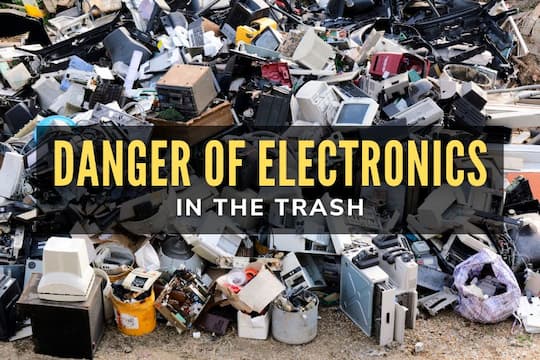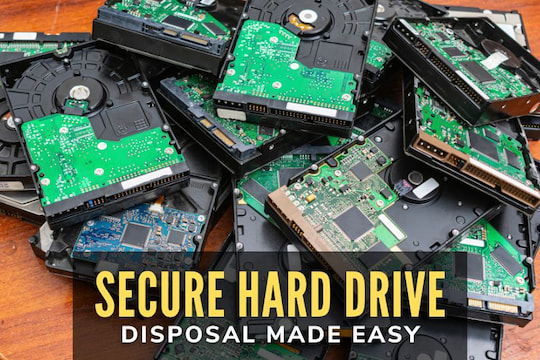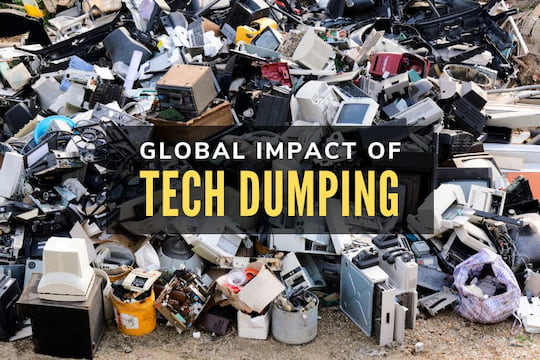Electronic waste (e-waste) is becoming a major environmental challenge as technology advances. Protecting our environment and safely managing hazardous materials is crucial. This blog will discuss effective strategies to educate consumers about proper eWaste disposal, increase awareness about e-waste, and promote a culture of environmental responsibility.
Why eWaste Disposal Matters

Electronic waste contains hazardous materials like lead, mercury, and cadmium. Improper disposal can lead to severe environmental and health issues. Educating consumers about proper eWaste disposal is crucial in mitigating these risks and promoting sustainable practices.
The Environmental Impact
eWaste contributes to pollution and resource depletion. When electronics are not properly disposed of, toxic substances can leach into the soil and water, harming wildlife and human health. Educating consumers on the environmental impact of improper disposal can motivate them to adopt better practices.
Health Risks
Businesses and government entities can encourage safer disposal methods by educating consumers about the risks associated with hazardous materials in eWaste. By highlighting the potential health problems that can arise from improper disposal, stakeholders can effectively inform consumers about proper eWaste disposal, thus safeguarding public health.
Economic Benefits
Proper eWaste disposal can also have economic benefits. Recycling valuable materials from old electronics can reduce the need for new raw materials, lowering production costs and conserving resources. Additionally, strategies such as data center decommissioning play a crucial role in the recycling and repurposing of electronic components, further emphasizing the importance of responsible eWaste management in both environmental and economic contexts.
Top Ways to Educate Consumers on Proper eWaste Disposal
Educating consumers on proper eWaste disposal is crucial for fostering a sustainable future. Here are several effective strategies to enhance public awareness and encourage responsible disposal practices:
Community Workshops and Interactive Sessions

Hosting community workshops provides hands-on learning experiences, showing participants the importance of responsible eWaste disposal. Interactive sessions, which may include dismantling and recycling electronics demonstrations, engage attendees and make the educational process enjoyable. Inviting expert speakers to these events can add credibility, allowing them to share insights and best practices.
Partnerships and Educational Campaigns
Forming collaborations with local environmental organizations can extend the reach of these educational efforts. These partnerships bring additional resources and can enhance the effectiveness of workshops. Broad educational campaigns, leveraging social media and public service announcements, can inform a wider audience. Using platforms like Facebook, Instagram, and Twitter, stakeholders can disseminate engaging posts, videos, and infographics explaining eWaste disposal processes.
School Involvement and Community Incentives
Integrating eWaste education into school curriculums encourages young students to adopt and advocate for sustainable practices early on. Providing convenient disposal options also plays a critical role in increasing consumer participation. Establishing accessible drop-off locations and organizing regular collection events makes it easier for individuals to participate. Mail-in programs, offering prepaid shipping labels, cater to those without nearby drop-off points.
Incentives and Recognition
To further motivate proper eWaste disposal, incentives such as discounts on new electronics for recycling old devices can be highly effective. Recognition programs that applaud consumer efforts can also be vital to cultivating ongoing engagement and pride. Contests and challenges can introduce a competitive and fun element, making eWaste disposal a community-focused initiative.
Creating a Sustainable Future
Educating consumers about proper eWaste disposal is vital in promoting environmental responsibility and reducing electronic waste. Businesses and government entities in Los Angeles and Orange County can significantly impact consumers by implementing strategies to educate consumers about proper eWaste disposal through community workshops, educational campaigns, convenient disposal options, and incentives. Together, we can create a greener, more sustainable future.




















